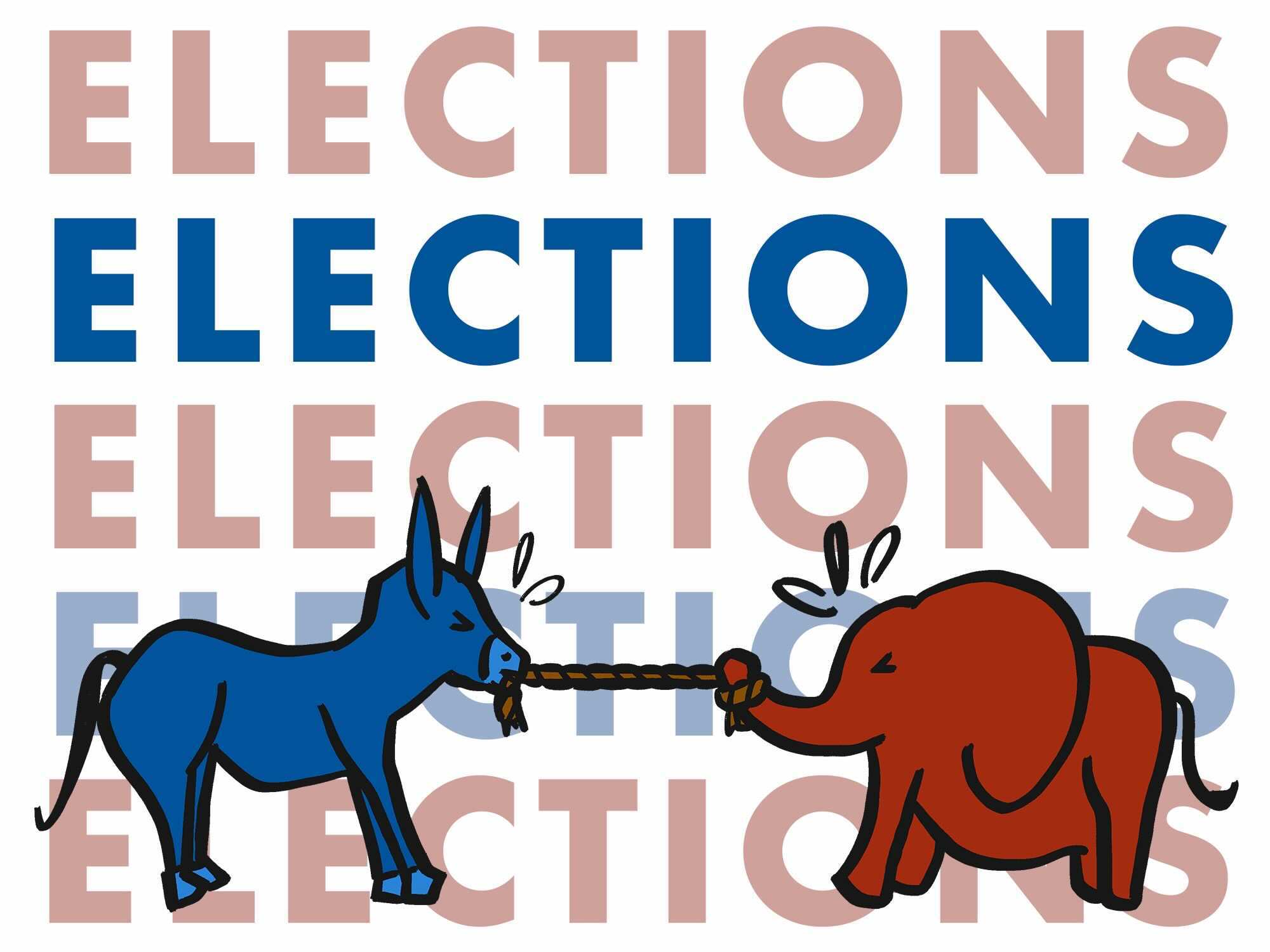2016
This guy is funny.
Eight years ago I was 11 and — like most 11-year-olds — I understood absolutely nothing about politics. However, like some particularly annoying 11-year-olds, I liked to pretend that I did. The 2016 election was particularly accessible to me because of the social internet. YouTube’s algorithm knew me intimately. My politics came from supercuts like “Ben Shapiro Thug Life” or “Donald Trump best insults.” I watched clips of debates or people who had talk shows and I loved the moments where civility was transgressed. I liked when Trump went “Because you’d be in jail” and then the crowd went “OHH” because it was a sick burn. I liked when he made fun of Jeb Bush who was trying to act all high and mighty. In short, I liked politics like I liked watching TV shows. I was there for the high stakes, the drama, the roasts and the laughs. And Donald Trump provided that best.
2020
I’m tired of this.
Between 2016 and 2020 I got into politics in a slightly more serious sense. I never intentionally read the news, mind you, but I scrolled past headlines on Reddit and occasionally even clicked on one. By 2020, I was staunchly left-leaning. I like to think I critically engaged with issues and came to my own conclusions in a more mature way. Realistically, I was also compelled towards the issues that made me feel intellectually or morally superior. Between these four years, I think I became more compassionate and thoughtful in my politics. I also think I became more arrogant.
For me, the 2020 election felt exhausting. Social media and the news cycle seemed to revolve around Donald Trump for so long. By then, I was stuck inside, so politics online became more relevant than ever. I remember reading over and over again that people were just absolutely overwhelmed by this election cycle and tired of four years of reading about Donald Trump. I think I absorbed that emotion from them.
The 2020 debate seemed to echo this sentiment, as the two candidates (though mostly one of them) talked over each other over and over in a downright suffocating conversation. There was no crowd this time. No laughter or cheers from the audience. I watched it and felt only this draining effect — this tired exhaustion with political media.
2024
This doesn’t feel real.
This is a thought I’ve been having for the past few months. The first time was earlier this summer, while I was chatting with friends on an August night. It felt like a revelation, and a vaguely frightening one. It made me understand how conspiracy theorists must feel: Here is an incongruity that feels so large that everyone must be ignoring it. The presidential election does not feel like a real thing. It feels so dramatic, so filled with performance and controversy and plot, that I feel like I can’t buy it. It feels like a TV show masquerading as reality.
Of course, some of it is my fault. Perhaps the election would feel more real if I read more about policy and polling. But still, I feel like the form that the election takes in my head is that of an intense narrative. The race is always so close, the tension always rising. Each month brings some new plot-point that raises the stakes: big trial results, assassination attempts, candidate-switches, big debates. All around me, everyone seems to absorb themselves in this enormous piece of mass media.
I guess I should stop dancing around the biggest reason the election feels surreal. It is unbelievable to me that Donald Trump has a shot again at the presidency. To be honest, after 2021, it felt a lot like his “character” had been finally defeated. He slowly shrank from my media landscape, occasionally popping up in some new exposé, but mostly feeling like his arc had ended. Now, Donald Trump’s campaign — one that happens after impeachments, convictions and an attempt to fraudulently overturn a democratic election — feels unbelievable. The insults and claims are back, the outrage and drama, the nicknames, the NFTs and trading cards.
To be honest, I don’t think this election is uniquely dramatic or surreal. Part of becoming an adult — I think, though I’m barely one year in — is brushing up against the world more directly. At 11 or 15, I had the privilege of insulation from any sort of real consequence (or responsibility) regarding the elections. Furthermore, the mediums that the elections took were ones of entertainment rather than information. Of course, politics feels like episodes of a dramatic TV show — how else are you supposed to capture attention on social media or cable news networks?
I think I always interacted with the election cycle as something more like fiction than reality. I think my feeling now has nothing to do with the fact that the election cycle feels so dramatically contrived. I’ve never encountered an election cycle that hasn’t felt that way. Instead, I think my feeling now has to do with a new understanding that, in spite of it all, the election is real. It’s like I’ve been watching a TV show all my life, and, suddenly, I’m told that what happens in the show will actually affect me and the world I live in.
But I don’t know. Maybe I just need to get off Twitter.
